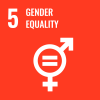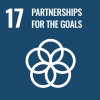Working Together to End Migrant Worker Exploitation
IOM has released a Theory of Change (TOC) study on ending exploitation of migrant workers.
The TOC examines the root causes of exploitation, forced labour, and vulnerabilities among migrant workers, identifying activities to address them. It proposes that action towards tackling human and labour rights challenges faced by migrant workers in international supply chains must result from a combined effort between various stakeholders. These include brands, suppliers, recruitment agencies, civil society, governments and academia.
According to the study, such collective action should lead to widespread change in regulatory approaches, business practices, and overall perceptions, and reduce migrant worker vulnerabilities.
The TOC proposes an approach based on necessary action and results across six outcome areas: Knowledge, Recruitment Fees, Culture, Governance, Effective Remedy and Transparency. The goal is that ethical recruitment channels and fair employment lead to decent work for all migrant workers. Establishing that no single public or private sector actor can drive change alone, it recognizes the complexity of exploitation in international supply chains and that related challenges cannot be resolved by one organization. All stakeholders play a part to ensure that the human and labour rights of migrant workers are fully upheld.
The study builds on the most recent approaches from multi-stakeholder initiatives and industry groups working on related topics. The TOC was developed in partnership with the ethical trade consultancy Impactt, having received input from the Consumer Goods Forum (CGF), Target, Thai Union, Shift, NYU Stern, International Women Rights Watch (IWRAW), and others.
In working to end modern slavery, multi-stakeholder platforms have repeatedly identified the need for an overarching theory of change. This is IOM’s response, summarizing opportunities for action, and means to enhance collaboration.
In 2019, IOM will complement the Theory with practical analysis tools, including a progress monitoring framework for the private sector to assess its contribution to change; an ethical recruitment roadmap; and a baseline assessment for selected industries and migration corridors.
For more information please contact IOM CREST.
























